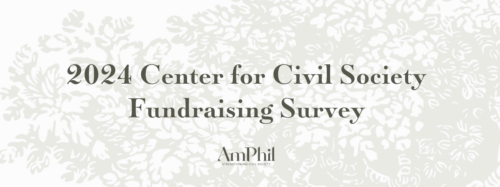Are churches communicating the importance of giving? If not, what does this mean for charitable giving and the health of civil society?
We at the Center for Civil Society are now finalizing the agenda for our November Givers, Doers, & Thinkers conference on “The Rise of the Nones: How Declining Religious Affiliation Is Changing Civil Society.” It will be a full day of expert panelists and featured speakers, as well as time for lively discussion among donors, nonprofit leaders, and scholars from across the nation.
Preparing for this conference made me think of a study published by the University of Notre Dame’s Catholic Social and Pastoral Research Initiative. The report compares American Catholics’ self-reported religious giving and philanthropy with those of other religious groups, using a nationally representative survey of about 2,000 Americans conducted in 2010. It is quite intriguing, as the authors find that Catholics are less generous in voluntary financial giving than other Christian groups in the United States.
Why is this? The authors, Brian Starks and Christian Smith, suggest that the most important factor explaining the giving gap is a lack of “spiritual engagement with money” on the part of most American Catholics. They go on to note that, “Rather than seeing their use of money and possessions as a part of their spiritual life—as a part of Christian formation and faithfulness—American Catholics tend to compartmentalize: they tend to separate money from matters of faith and to think that money and material possessions have little to do with spiritual or religious issues.”
The remedy, according to the authors, is for discussions of money in Catholic parishes to center not on meeting basic organizational needs, but rather on spiritual growth and personal and societal transformation. This is prudent advice, as most fundraisers will tell you that inspiring stories that propose to use a donor’s gift to advance the common good are almost always more effective than pleas to write a check to keep the lights on.
Of course, the data used in the report is now thirteen years old. It raises the question of whether churches—not just Catholic parishes—are communicating the importance of giving. It should be noted that the report does not only measure tithing that goes directly to religious offices or parishes but also measures giving to the nonprofits that help society function, through disaster relief, countering food scarcity, and alleviating homelessness. This demands that we ask ourselves another question that will be discussed at the upcoming conference: If religious affiliation declines and America becomes less charitable, what does that mean for society?
AmPhil’s Center for Civil Society will host our third Givers, Doers, & Thinkers conference in Scottsdale, Arizona, on November 7th and 8th at the W Scottsdale. Join us as we discuss the rise of the “nones” and how declining religious affiliation is impacting American civil society. We will explore what an increase in irreligiosity means for local charity, education, and other aspects of public life—and what philanthropists and nonprofit leaders are doing, and could do, in response.






